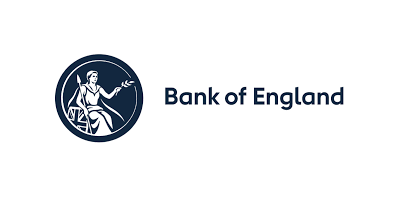
The Bank of England has held interest rates at 5.25% for the fourth consecutive time, with the Monetary Policy Committee split three ways on the decision.
It had been feared that interest rates would be increased following an inflationary rise in December 2023 to 4.0% from 3.9% in November.
However, according to the latest Monetary Policy Report, the rate of Consumer Prices Index (CPI) inflation is set to fall to 2% between April and June this year, about 18 months earlier than previous forecasts.
But it will only stay at the target level temporarily before increasing during the second half of the year, and could rise to 2.8% by the first three months of 2025, with energy prices expected to be a key driver of the level of inflation throughout the year.
This morning, the Institute for Economic Affairs (IEA) Shadow Monetary Policy Committee had issued a statement urging interest rates to be cut to avoid economic stagnation.
Trevor Williams, Chair of the Shadow Monetary Policy Committee and former chief economist at Lloyds Bank, said: “The latest data suggests that the economy likely avoided recession in the last quarter of 2023, but only just. At best, the UK economy grew by around half a per cent in 2023. This pace of growth offers no threat to inflation.”
Following today’s interest rate announcement, Mike Randall, CEO of Simply Asset Finance said: “A hold in interest rates may put business leaders' minds at ease for now, but longer-term, the challenges they face today still relate to their ability to remain productive and profitable. By all accounts, last year was one of the most difficult on record for insolvencies as a combination of high interest rates, soaring inflation and operational costs weighed down on company overheads. But despite these odds, 83% of SMEs we surveyed said they remain optimistic about the future of their business.
“It is clear small firms are showing admirable resilience, but this year they simply want reassurance we won’t see a repeat of 2023. While inflation has been halved from its previous double-digit highs, we must also consider two crucial government business support schemes are soon coming to an end; the Energy Bill Discount Scheme in March, and the Recovery Loan Scheme in June. And with no continuity or alternatives currently planned, many firms could face having to postpone future investment. Until reassurance can be guaranteed, it will be crucial that lenders step up to provide financial reassurance and flexibility to SMEs facing these challenges.”
Neil Rudge, head of enterprise at Shawbrook, commented: "Business leaders can take comfort in the MPC's decision and that the unexpected rise in inflation during January did not prompt a rate hike. The macroeconomic landscape is currently challenging to interpret, with the optimism from anticipated rate cuts at the end of last year somewhat subdued by last month's CPI reading. Both business owners and policymakers will be closely monitoring whether this inflationary stubbornness persists, as well as potential economic headwinds caused by the challenges in the Middle East.
“Despite the uncertainty, SMEs can draw optimism from recent data indicating consumer confidence is at its highest level in two years. This positive sentiment is expected to translate into increased sales over the next 12 months for many SMEs, which would boost revenues and foster a more optimistic business environment."

